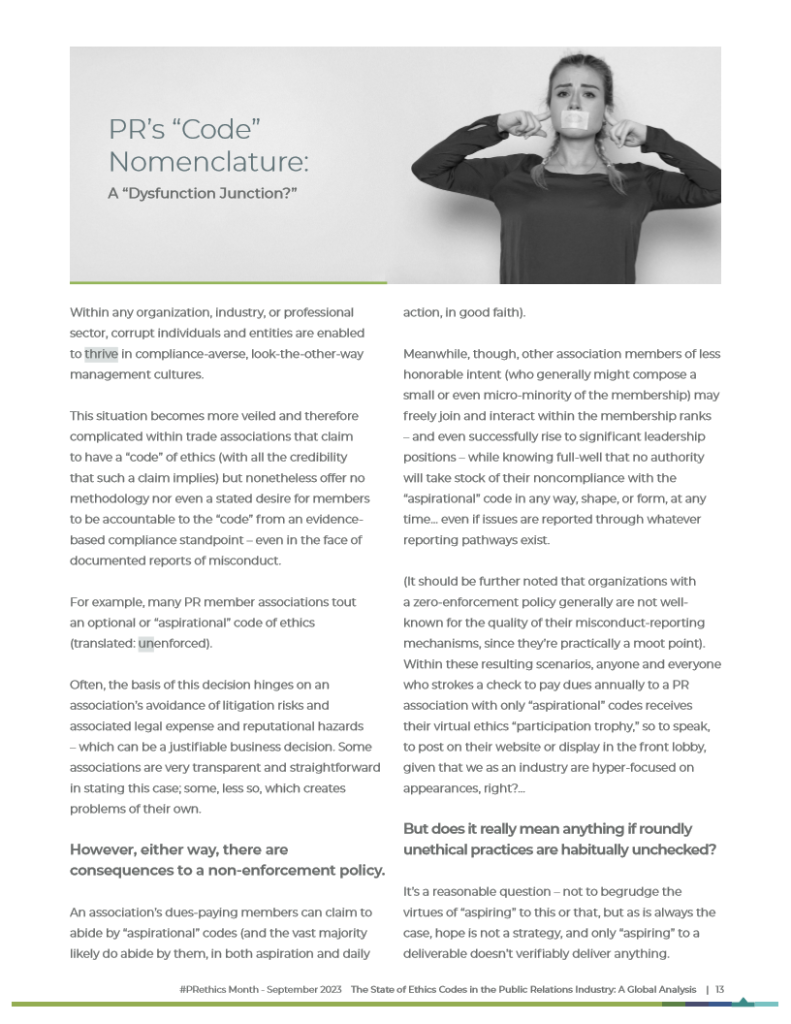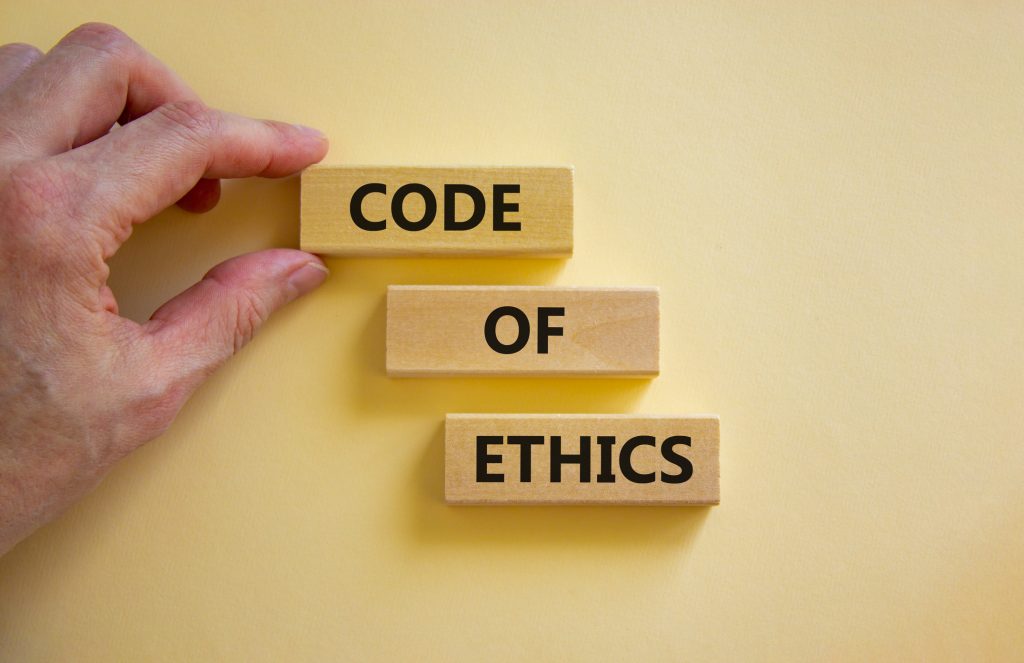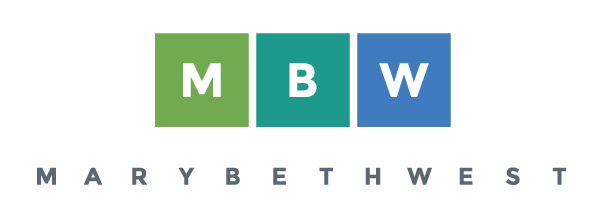In “Ethics” Parlance, When is the Word “Code” an Utter Misnomer?
This #PRethics Month (Sept. 2023), the PR industry is challenged to consider a simple question:
When is an ethics “code” not a “code” at all?… But rather, a “list of nice things to consider”?
Public relations is a line of work in which words matter.
In fact, if this industry is known at all, it’s known for its penchant to select individual words with meticulous attention to detail, in every context and subtext, even if in a mere text.
So what gives with the PR industry’s assignment — or common mis-assignment, as it were — of the word “code,” when various PR industry groups and agencies claim to subscribe to an “ethics code” of professional standards and conduct… when in fact, it’s not a “code” at all, by any reasonable application of common definitions?
A new white paper, “The State of Ethics Codes in the Public Relations Industry: A Global Analysis” (excerpt below), delves into this nomenclature issue, among many other stumbling blocks that the PR industry contends with in shepherding ethical workplace decision-making by communicators, within its own ranks:

The white paper documents research by the London-based Institute of Business Ethics, showing that of 24 PR industry associations in nearly two dozen nations on six continents worldwide, ambiguity and inconsistency abound, when it comes to “code” enforcement.
According to the IBE’s analysis:
“Whereas in 80% (n=20) of the associations adherence to the code is a requirement for membership, not all associations enforce the code. Of the twenty associations which listed adherence to the code as mandatory for members, three categories emerged:
- “Enforced – (n=13) These associations were explicit on their enforcement of the code.
- “Unenforced – (n=1) Only PSPR explicitly explains that the code is not enforced and the rationale is: “Public relations employees, aware of the role of a high ethical level in the exercise of this profession, voluntarily adopt this Code and declare that in their work they will be guided by its provisions in order to create the best possible reputation of the public relations profession.” – PSPR
- “Not clear – (n=6) These associations make no reference in relation to the enforcement of the code. For this reason, it is assumed that these codes are not enforced.”
Meanwhile, the white paper considers that Merriam-Webster’s definition of the word “code” leaves little to the imagination about the level of seriousness that such a word implies.
Descriptors such as “systematic,” “law,” “statutory force,” and “rules,” are part of a what a “code” is, by definition.

Is it, then, false advertising for any organization to claim it has a “code” of ethics or conduct or whatever, if no compliance function exists… particularly in situations where purposeful violations are copiously documented… and even repetitious in their occurrence.
What’s more, isn’t false advertising a… “code” violation, by any standard?
Bitter irony strikes again!
The false-advertising question is a serious one for the PR industry to consider, for the sake of its own integrity.
After all, if we wish to be respected as an industry that values truth, honesty, authenticity, and transparency, then shouldn’t we practice it where it matters most in our own professional ranks… starting with accurate words that reflect accurate purpose and intent on matters of what a “code” even is?
At a minimum, it seems that PR practitioners, leaders, agencies, and industry associations that observe no compliance function whatsoever — nor any desire to adopt one (or worse yet, that adopt a “make-it-up-as-we-go-along” approach to fit whatever outcome is desired) — should reconsider their own choice of words in claiming to have a “code” at all.
Shouldn’t they instead assign more accurate language to describe what they subscribe to — such as “Ethical Guidelines,” not a “code”?
Food for thought, for an industry still seeking its own clarity, after many decades of trying.
Feel free to download the white paper, and participate in the online conversation, via #PRethics.
Mary Beth West, APR, FPRCA, is one of the PR industry’s most vocal advocates for standards of practice that elevate understanding, respect, and market demand for excellence in public relations services and recruitment of strong talent.
